Blog • Published on:June 25, 2025 | Updated on:June 25, 2025 • 9 Min
What You Need to Know About Staying Safe in Portugal
Portugal keeps landing near the top of global safety rankings, and for good reason. Whether you're visiting for a few weeks or thinking about living here, safety tends to be one of the least stressful parts of the experience.
According to the 2024 Global Peace Index, Portugal ranks among the top 10 safest countries in the world, higher than most of its European neighbors. Violent crime is rare, and everyday life moves at a pace that feels calm and grounded.
That said, there are still a few things to know before making any big decisions, especially when it comes to certain city zones, property security, or understanding how the local system handles safety and healthcare.
This guide breaks it all down, so you know exactly what to expect, and what to look out for.
Overview of Safety in Portugal
How Safe Is Portugal in 2025?
Portugal continues to rank among the safest countries in the world. As of the 2024 Global Peace Index, it holds the 7th position globally, maintaining its place ahead of countries like Austria, Ireland, and the Netherlands.
This index considers crime levels, political stability, access to weapons, and domestic conflict, and Portugal scores high across all.
Portugal vs. Other European Countries
What the Data Shows
According to the Instituto Nacional de Estatística (INE):
- Overall crime decreased by 1.3% in 2024 compared to the previous year.
- Violent crime remains below the EU average, with most incidents classified as non-lethal and non-aggravated.
- Theft and pickpocketing continue to be the most reported offenses, especially in Lisbon and Porto.
Emergency services, including police, medical, and fire response, operate efficiently under a central emergency number (112) and are accessible in English across major cities.
Portugal’s consistently low rates of violent crime and strong public infrastructure continue to make it one of Europe’s most secure places to live and travel.
Crime Rates and Safety Statistics in Portugal
What Are the Most Common Types of Crime?
Portugal’s crime landscape is relatively mild by European standards. The most reported offenses in 2024 were non-violent and opportunistic:
- Pickpocketing and bag theft — frequent in busy tourist zones, public transport, and major events.
- Bicycle and scooter theft — rising in urban areas like Lisbon and Porto.
- Car break-ins — often in unmonitored parking areas, especially near beaches or tourist viewpoints.
- Online fraud and scams — increasing slightly, mostly via phishing or rental fraud schemes.
Are Tourists at Risk?
Tourists are generally safe in Portugal. Most incidents involve pickpocketing in areas like Baixa (Lisbon), Ribeira (Porto), and major metro stops.
Travelers targeted are typically distracted or unaware, phones left on tables, open bags, or unlocked rental cars are common triggers.
There are no active zones of organized crime targeting foreigners, and confrontational street crime is uncommon. Police presence is visible in all high-traffic tourist corridors, especially during summer and major events.
Which Neighbourhoods Are the Safest?
Lisbon
In Portugal’s capital, some of the safest neighbourhoods include Príncipe Real and Campo de Ourique. These are quiet, residential areas known for their walkability, low noise levels, and strong local community presence.
They're especially popular with families, remote workers, and expats. On the flip side, areas like Bairro Alto and Martim Moniz are more dynamic and nightlife-driven, not unsafe, but more prone to pickpocketing and occasional street noise.
Porto
Up north, Foz and Boavista stand out as the most secure zones in Porto. These are upscale, coastal neighbourhoods that offer a mix of modern living and low crime rates. They’re favoured by professionals and retirees alike.
Meanwhile, Campanhã has a reputation for being more vulnerable to petty theft and less-polished infrastructure, although redevelopment projects are underway.
Algarve
In the southern region, Vilamoura and Lagos are among the safest coastal towns. Both are designed with tourism and expat living in mind, offering high police visibility and well-maintained public spaces.
These areas tend to stay peaceful even during the busy summer months, with strong safety records year-round.
Safety for Different Demographics
Expat Safety Guidelines
Expats living in Portugal generally experience a high level of personal security. Most settle in areas with strong infrastructure, such as Lisbon’s Estrela or Porto’s Foz. These neighbourhoods report low crime rates and have reliable emergency response systems.
Residency registration through SEF (now AIMA) also improves access to local services, including healthcare and police assistance. English-speaking support is increasingly available at police stations and health centres in expat-dense zones.
Family Safety Considerations
Portugal is considered one of the safest EU countries for raising children. School zones are strictly monitored, and traffic regulation near educational institutions is well enforced. Neighbourhoods like Carcavelos (near international schools) and Cascais (popular with diplomatic families) have some of the lowest reported incidents involving minors.
Parks, public transport, and childcare centres follow safety standards in line with EU protocols. Vaccination rates are high, and pediatric care is widely accessible, particularly in urban areas.
Solo Traveler Security
Solo travellers face minimal risk in Portugal, even in urban centres. Public transport is widely used and safe during most hours. Metro stations and bus stops are monitored by security and cameras, particularly in Lisbon and Porto.
Most reported incidents involve pickpocketing in train stations or tourist hotspots like Belém and Santa Catarina. Avoiding isolated areas after midnight and using rideshare apps over informal taxis are standard precautions.
Digital Nomad Safety
Portugal’s digital nomad hotspots, including Lisbon, Ericeira, Madeira, and Lagos, are well-adapted for remote workers. Co-working hubs often include secure access, 24-hour surveillance, and English-speaking staff. Internet cafés and public Wi-Fi zones are common but should be used with a VPN, as phishing scams have increased in 2024.
Nomads staying in short-term rentals should confirm security features like smart locks, in-building access control, and insured contents coverage.
Madeira's digital nomad village in Ponta do Sol, backed by government support, has a strong local security presence and remains one of the safest working communities in Europe.
Property and Investment Safety
Real Estate Investment Security
Portugal’s property market is stable and legally transparent. All real estate transactions must go through licensed notaries, and ownership is recorded with the Conservatória do Registo Predial.
Title fraud is extremely rare due to mandatory legal verification and digital land registry access. Foreign buyers are protected under the same property laws as citizens, and mortgage fraud rates remain among the lowest in the EU.
Key things to secure before purchase:
- A land registry certificate (certidão do registo predial)
- A tax number (NIF)
- Legal review of the promissory contract (CPCV)
Banking System Safety
Portugal’s banks are regulated by the Banco de Portugal and follow EU-wide security standards. Deposit protection covers up to €100,000 per account, per person, per bank under the Portuguese Deposit Guarantee Fund.
Online banking platforms have two-factor authentication, and reported banking fraud rates are low. International money transfers and property-related funds are tracked under strict anti-money laundering protocols.
Golden Visa Investment Protection
Although the traditional real estate-based Golden Visa route ended in 2023, prior investors remain protected under Portuguese law. Those holding active permits have full legal rights to maintain or renew their status under the original terms.
Investment funds and cultural donation routes now used in place of property still require regulatory approval and are monitored by the CMVM (Portuguese Securities Market Commission) for compliance and investor protection.
Practical Safety Tips for Portugal
Personal Safety Measures
- Keep phones and wallets in front pockets or zipped bags in crowded areas.
- Avoid poorly lit alleys or isolated parks after midnight in cities.
- Use official taxis or verified ride apps like Bolt or Uber.
- In nightlife districts, avoid leaving drinks unattended.
- Call 112 for police, fire, or ambulance.
Property Security
- For long-term stays, install basic alarm systems or video intercoms.
- Choose apartments with gated entry or coded access when possible.
- Avoid ground-floor units with unsecured windows in city centres.
- In rural areas, engage local caretakers for seasonal properties.
Future Safety Outlook
Portugal continues to prioritize public safety through strategic investments:
- Urban surveillance upgrades are underway in Lisbon, Porto, and Setúbal with expanded CCTV coverage in transport hubs and public squares.
- Cybercrime response units under Polícia Judiciária have grown since early 2024, focusing on online fraud, data breaches, and financial scams.
- Tourism police programs have expanded to cover smaller towns like Évora and Nazaré, offering multilingual support.
- Emergency infrastructure modernization, including wildfire response units and coastal rescue services, has been reinforced with EU funding.
The country’s long-term public safety planning remains aligned with EU directives and has consistently ranked high for institutional trust and civil protection.
Portugal is a very safe, stable, and welcoming option if you’re looking to relocate and build a long-term life in Europe. Contact Savory & Partners to explore the best route, from residency to real estate and long-term security.
FAQs About Safety and Living in Portugal
1. Is Portugal safe to live in as a foreigner?
Yes. Portugal is consistently ranked among the safest countries in the world. Expats report feeling secure in both cities and smaller towns, with low levels of violent crime and high public trust in local services.
2. Are there areas in Portugal foreigners should avoid?
While Portugal is generally safe, certain parts of Lisbon (like Intendente at night) or Porto (such as parts of Campanhã) may have higher rates of petty theft. These aren’t dangerous but require more awareness.
3. How reliable are Portugal’s emergency services?
Very. Dialing 112 connects you to emergency police, fire, or medical assistance. Services are fast in urban areas and increasingly available in English.
4. Is Portugal good for families and children?
Absolutely. The country has strong healthcare, excellent schooling options (including international schools), and low crime around residential neighborhoods popular with families.
5. Can I safely invest in property in Portugal?
Yes. The legal system protects foreign buyers through verified registries, licensed agents, and transparent transaction processes. Real estate fraud is extremely rare when proper due diligence is followed.
References
Direção-Geral da Política de Justiça. (2024). Estatísticas sobre crimes registados pelas autoridades policiais. Ministério da Justiça. Retrieved from https://estatisticas.justica.gov.pt/sites/siej/pt-pt/Paginas/Crimes_registados_autoridades_policiais.aspxdados.
Serviço Nacional de Saúde. (2024). Serviços de urgência – Serviço Nacional de Saúde. Ministério da Saúde. Retrieved from https://www.sns.gov.pt/servicos-de-urgencia-sns/sns.
Governo de Portugal. (2024). Relatório Anual de Segurança Interna (RASI 2024). Retrieved from https://www.portugal.gov.pt/pt/gc24/comunicacao/documento?i=relatorio-anual-de-seguranca-interna-rasi-2024portugal.
Autoridade Nacional de Emergência e Proteção Civil. (2025). Plano de Emergência e Transformação na Saúde. Governo de Portugal. Retrieved from https://www.portugal.gov.pt/pt/gc24/comunicacao/documento?i=plano-de-emergencia-e-transformacao-na-saude
Centro Nacional de Cibersegurança. (2024). Relatório de riscos e conflitos 2024. Retrieved from https://www.cncs.gov.pt/docs/rel-riscosconflitos2024-obcibercncs.pdf
Written By

Andrew Wilder
Andrew Wilder is a multifaceted author on Business Migration programs all over the globe. Over the past 10 years, he has written extensively to help investors diversify their portfolios and gain citizenship or residency through innovative real estate and business investment opportunities.
Related Articles





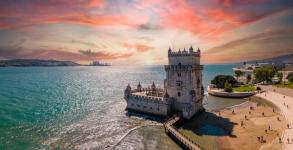

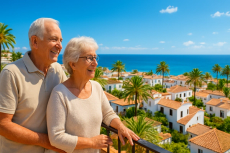

Recently Published

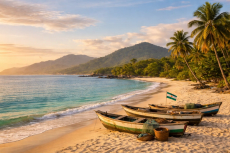


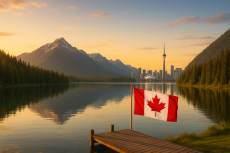
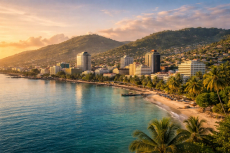



Book a free consultation


